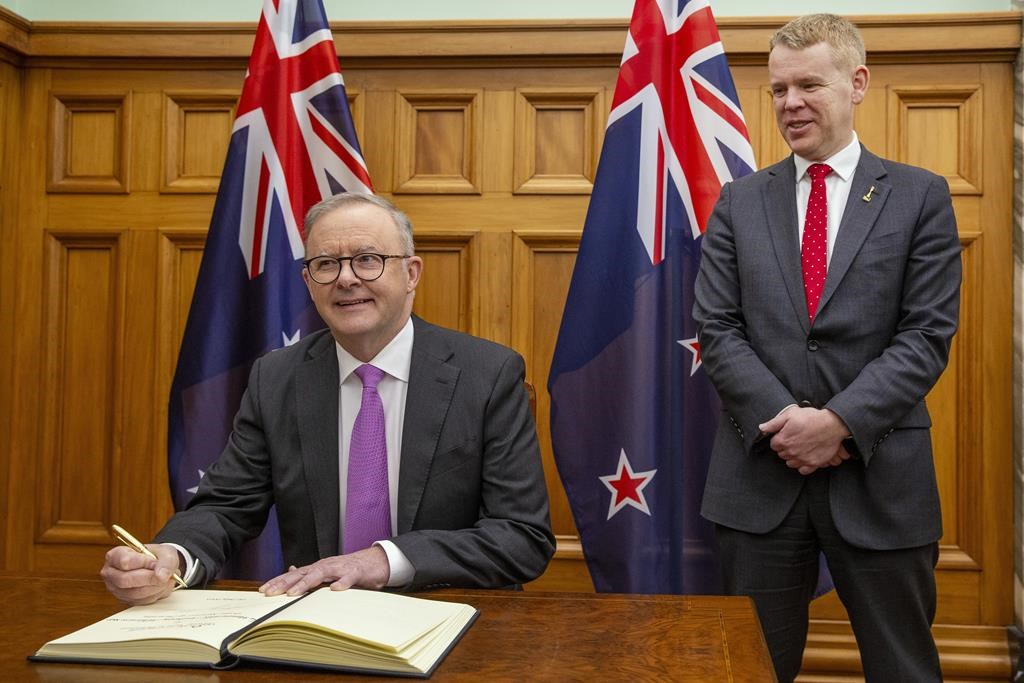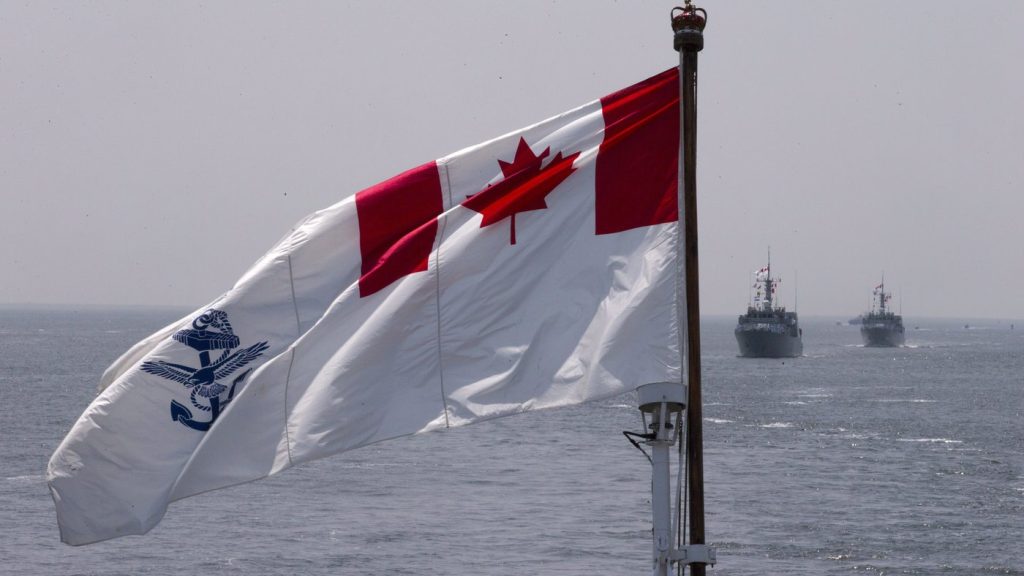New Zealand’s anti-nuclear stance means it won’t play a role in Australia’s submarine plans

Posted Jul 26, 2023 05:00:03 AM.
Last Updated Jul 26, 2023 05:15:54 AM.
WELLINGTON, New Zealand (AP) — New Zealand’s longstanding commitment to remaining nuclear-free means it won’t play a role in Australia’s plans to acquire nuclear-powered submarines, the leaders from both countries said after meeting Wednesday.
Australian Prime Minister Anthony Albanese made his first official visit to New Zealand since becoming leader last year and emphasized the growing closeness between the neighboring countries, including plans to make travel easier at the border.
But that closeness and alignment on many geopolitical issues won’t extend to the so-called AUKUS deal for the submarines that was brokered by Australia, the United States and Britain.
Some observers worry that New Zealand’s defense efforts risk becoming marginalized by the nation being left out of the deal.
“I think there is no question that we have a different position around nuclear, in terms of nuclear propulsion is also covered by New Zealand’s nuclear-free arrangements,” Hipkins said.
Albanese said there are “no plans at this point in time” to include New Zealand in a second stage of the AUKUS arrangement, which revolves around the use of advanced technology.
“We already have an important relationship in defense,” Albanese said of the two countries, adding that they are looking to extend cooperation across other areas, such as interoperability.
New Zealand’s opposition to having nuclear-armed or even nuclear-powered ships dock in its ports dates to the 1980s and stems from its opposition to nuclear testing in the Pacific. It has long been a sticking point in the nation’s defense relationship with the U.S. and, more recently, Australia.
New Zealand remains a member of the so-called Five Eyes intelligence-sharing alliance with the U.S., Britain, Canada and Australia.
In a joint statement, the leaders also said they were concerned a new police cooperation plan between China and the Solomon Islands “would undermine the Pacific’s agreed regional security norms.”
Nick Perry, The Associated Press








